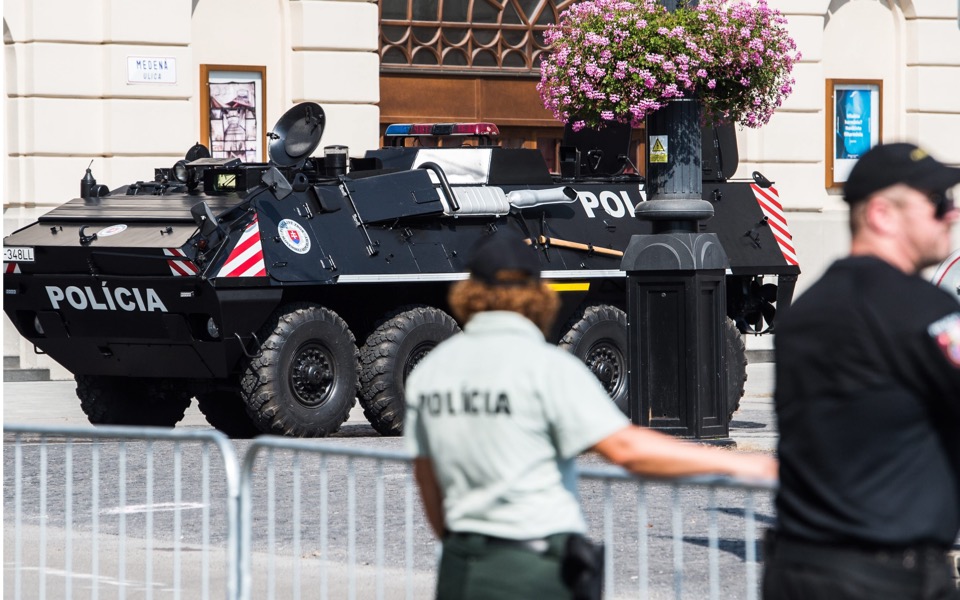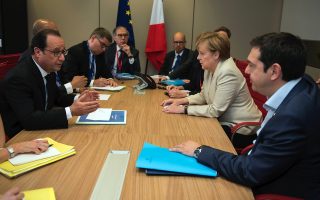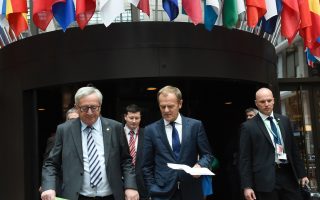Revival or survival of the EU – what to expect from informal summit

All eyes are being directed to Bratislava this week. The leaders of 27 European Union member-states will meet in the Slovak capital to discuss what to do with the European project.
The European Union is battered by a number of crises. The effective answer to them does not lie in succumbing to pessimism, tolerating or even enhancing fragmentation and accepting defeatism. Neither can it be found in denying the problem and postponing the treatment. Europe deserves the right diagnosis.
I expect, and I am convinced, that the upcoming informal summit in Bratislava will start the process of identifying what went wrong in the EU and defining what kind of EU we want to have and build after the United Kingdom leaves the club. It shall also shed some light on the way forward and outline the direction we want to go. Things we want to improve. Reforms we are willing to make. I hope the summit will start a process of Europe’s fresh revival – otherwise we will have to fight for the EU’s survival.
As a promoter of a positive European agenda, the Slovak EU Presidency would like the summit to focus foremost on issues and projects which unite us rather than divide us. We should not end up in a vicious circle of endless discussions about EU´s problems. We want to prevent skepticism from taking over the mood in Europe. Quite the contrary. We must send a clear message to our people and to the world that the EU27 is still strong, united, able to reach agreement and ready to deliver improvements to the lives of the citizens.
The focus should be placed on what concerns Europeans most. Security in all its forms – economic security, job security, social security, internal security and terrorism, as well as climate security. Migration – how to manage it in a sustainable and long-term way.
The communication gap between the EU institutions and citizens, young people in particular, shall be addressed, too. People do not feel they benefit from EU policies anymore. We all need to work very hard to regain their trust and support for the European idea. Complicated bureaucratic language will not take us there. (Nor does false political correctness). The EU, its institutions and leaders should adopt and use understandable, clear language when talking to the citizens.
The summit is awaited with great expectations. The preparations are in the hands of the European Council. However, as a fair mediator, the Slovak Presidency wishes to contribute to the summit’s positive ambiance and outcome. Many meetings have taken place by now to ensure the summit's proceedings be smooth and the agenda ambitious and realistic, visionary and concrete at the same time. The summit should result in a clear identification of key issues we must deal with in the coming weeks and months, and outline the steps to take. It should also mark a full stop in the mutual blame game. Instead, it should emphasize the importance of empathy, the will to listen to each other and ability to compromise.
The summit will not be a one-off event. This time we have to be patient because quick fixes will not work. Bratislava will be just a start, the start to a deeper reflection process leading to a new uniting vision which reinforces the EU’s strengths and eliminates its weaknesses. Hopefully, at the summit in March 2017, marking the 60th anniversary of the Rome Treaties, the EU27 will be able to offer such vision.
I strongly believe in the EU and despite some of its malfunctions; it is the best peace project in the history of mankind and still a source of global inspiration and aspiration. I am sure that if we see our past failures as an opportunity to do things better, success will come. And I truly hope Bratislava will start a process through which a new, enthusiastic, clear, understandable and even more united European Union will come to life.
* Miroslav Lajcak is Slovakia's minister of Foreign and European Affairs. Slovakia is currently holding the rotating EU Presidency.





